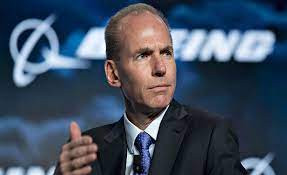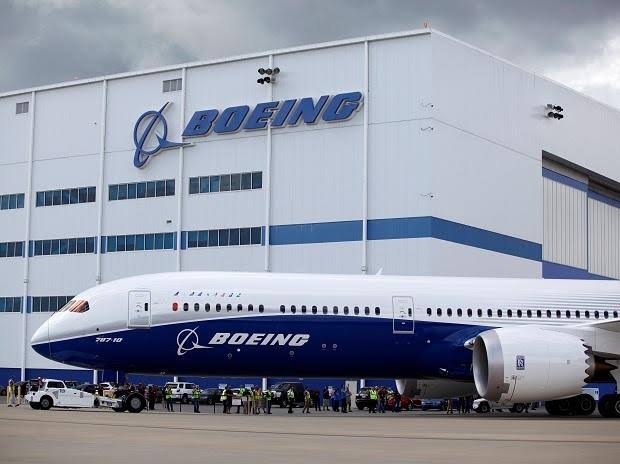5G Network Could Ground Planes, Cause Crashes
The CEOs of major US passenger and cargo carriers have warned of an impending “catastrophic” aviation crisis in less than 36 hours, when AT&T and Verizon are set to deploy new 5G services.
The airlines warned the new C-Band 5G service set to begin on Wednesday could render a significant number of wide-body aircraft unusable, “could potentially strand tens of thousands of Americans overseas” and cause “chaos” for US flights.
“Unless our major hubs are cleared to fly, the vast majority of the travelling and shipping public will essentially be grounded,” wrote the CEOs of American Airlines, Delta Air Lines, United Airlines, Southwest Airlines and others.

The transportation industry is preparing for some service disruption
The Federal Aviation Administration (FAA) has warned that potential interference could affect sensitive airplane instruments such as altimeters and significantly hamper low-visibility operations.
Read also : Five Reasons Why 5G Makes a Real Difference
“This means that on a day like yesterday, more than 1 100 flights and 100 000 passengers would be subjected to cancellations, diversions or delays,” the letter.
Airlines late on Monday were considering whether to begin cancelling some international flights that are scheduled to arrive in the US on Wednesday.
“With the proposed restrictions at selected airports, the transportation industry is preparing for some service disruption. We are optimistic that we can work across industries and with the government to finalise solutions that safely mitigate as many schedule impacts as possible,” plane maker Boeing said on Monday.
Action is urgent, the airlines added in the letter also signed by UPS Airlines, Alaska Air, Atlas Air, JetBlue Airways and FedEx Express. “To be blunt, the nation’s commerce will grind to a halt.”
The letter went to White House National Economic Council director Brian Deese, transportation secretary Pete Buttigieg, FAA administrator Steve Dickson and Federal Communications Commission (FCC) chairwoman Jessica Rosenworcel.
Read also : Three New Airlines Debuts on Nigeria’s Domestic Aviation Industry
Airlines for America, the group that organised the letter, declined to comment. The FAA said it “will continue to ensure that the travelling public is safe as wireless companies deploy 5G. The FAA continues to work with the aviation industry and wireless companies to try to limit 5G-related flight delays and cancellations.”
AT&T and Verizon, which won nearly the entire C-Band spectrum in an US$80-billion auction last year, on 3 January agreed to buffer zones around 50 airports to reduce interference risks and take other steps to cut potential interference for six months. They also agreed to delay deployment for two weeks until Wednesday, temporarily averting an aviation safety standoff, after previously delaying service by 30 days.
Verizon and AT&T declined to comment on Monday. They argue C-Band 5G has been successfully deployed in about 40 other countries without aviation interference issues.
The CEOs of major airlines and Boeing CEO Dave Calhoun held a lengthy call with Buttigieg and Dickson on Sunday to warn of the looming crisis, officials said.
United Airlines late on Monday separately warned the issue could affect more than 15 000 of its flights, 1.25 million passengers and snarl tons of cargo annually.
United said it faces “significant restrictions on 787s, 777s, 737s and regional aircraft in major cities like Houston, Newark, Los Angeles, San Francisco and Chicago.”
The airlines ask “that 5G be implemented everywhere in the country except within the approximate two miles (3.2 km) of airport runways” at some key airports. Immediate intervention is needed to avoid significant operational disruption to air passengers, shippers, supply chain and delivery of needed medical supplies,” they said.
Multiple modern safety systems on aircraft will be deemed unusable causing a much larger problem than what we knew.
Read also : Fintech Farm Plans To Launch Neobank In Nigeria Within 2 Years
The airlines added that flight restrictions will not be limited to poor weather operations.
“Multiple modern safety systems on aircraft will be deemed unusable causing a much larger problem than what we knew… Aeroplane manufacturers have informed us that there are huge swaths of the operating fleet that may need to be indefinitely grounded.”
One area of concern is whether some or all Boeing 777s will be unable to land at some key US airports after 5G service starts, as well as some Boeing cargo planes, airline officials said.
The airlines urged action to ensure “5G is deployed except when towers are too close to airport runways until the FAA can determine how that can be safely accomplished without catastrophic disruption”.
The FAA said on Sunday it had cleared an estimated 45% of the US commercial aeroplane fleet to perform low-visibility landings at many airports where 5G C-band will be deployed and they expect to issue more approvals before Wednesday. The airlines noted on Monday that the list did not include many large airports.
Kelechi Deca

Kelechi Deca has over two decades of media experience, he has traveled to over 77 countries reporting on multilateral development institutions, international business, trade, travels, culture, and diplomacy. He is also a petrol head with in-depth knowledge of automobiles and the auto industry



